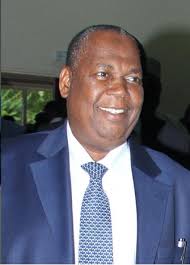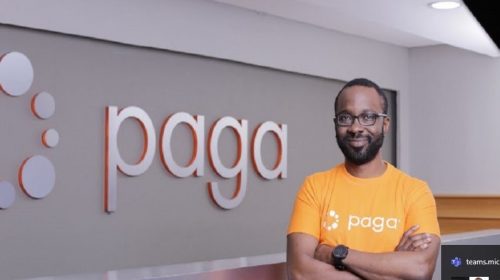Address By MD/CEO NDIC, Umaru Ibrahim At Ongoing NDIC Workshop For Financial Journalists In Kaduna

Umaru Ibrahim
KEYNOTE ADDRESS OF THE MANAGING DIRECTOR/CHIEF EXECUTIVE, NIGERIA DEPOSIT INSURANCE CORPORATION, UMARU IBRAHIM, FCIB, mni AT THE OPENING CEREMONY OF THE KADUNA RUN OF THE 2020 NDIC WORKSHOP FOR BUSINESS EDITORS, FINANCE CORRESPONDENTS ASSOCIATION OF NIGERIA AND OTHER STAKEHOLDERS AT HOTEL SEVENTEEN, KADUNA ON WEDNESDAY 25TH NOVEMBER, 2020
Protocols
1.0 I feel greatly honoured and delighted to welcome you all to the Kaduna Run of the 2020 Workshop for Business Editors and Finance Correspondents Association of Nigeria (FICAN).
The annual FICAN workshop which began fourteen years ago, has transformed into a veritable human capital development platform. It provides a unique avenue to critically analyse emerging issues, engage with critical stakeholders, and most importantly enhance and update the knowledge of financial journalists on current trends in the financial system. Ultimately, the FICAN workshop continues to serve as a tool to enhance the quality of reportage especially in addressing misconceptions about the mandate and activities of the Corporation in promoting financial system stability.
2.0. About 2015, the Corporation expanded the scope of participants for the workshop to include members of the civil society groups, given their active roles in advocacy and mass mobilisation across the broad spectrum of our national lives. And this year, the scope of participants was further widened with the inclusion of Association of Corporate Affairs Managers of Banks and Chief Executives of Microfinance Banks from across the country in view of the need to broaden the opportunity for collaboration on the implementation of a robust deposit insurance system in Nigeria.
3.0. For us, this is a necessary strategy to tackle the low level of public awareness on the scope, benefits and limitations of the DIS in Nigeria. Permit me to say that the Corporation will continue to partner with different strategic stakeholders in the industry to deepen the DIS practice and financial system stability in Nigeria.
5.0. At this juncture, I would like to focus our attention on this year’s theme: “COVID-19 & FinTech Disruption: Opportunities & Challenges for Banking System Stability and Deposit Insurance”. In my mind, I believe the theme aptly captures the current concerns of all stakeholders within the local and global economic and financial landscape. The theme was carefully chosen to critically analyse the risks, implications and opportunities posed by the Pandemic and FinTech on the Nigerian banking sector and the global financial system as a whole.
6.0. The impact of the COVID-19 pandemic and the resultant disruptions to social and economic activities had negative consequences on all nations across the world. The threat of recession, increased national debt, increase in non-performing loans and potential financial crisis has put pressure on regulators to reassess their supervisory activities to strengthen their capabilities to address these challenges and forestall financial crisis.
7.0. On the other hand, FinTech is simply the common term used to describe the technology (internet, mobile devices, software app, cloud services and many more) that are used in delivering important financial services that were exclusive to traditional financial institutions. Despite promising innovation and economic growth through disruption of traditional finance, Fintech disruptive financial services such as chip-based debit/credit cards, mobile and web-based payments cloud computing also poses a major challenge to the regulatory paradigm.
8.0. Distinguished participants, managing financial system risks requires collaboration. Financial system instability increases the volatility of asset prices and investor behaviour, leading to deteriorating credit conditions, increased costs to firms and households and potentially the collapse of the payment system. There is increasing evidence that Fintech innovations have many advantages for businesses and customers. The World Economic Forum, 2017, suggests Fintech is “disruptive”, “revolutionary”, and armed with “digital weapons”, that will “tear down” traditional financial institutions. Fintech will enhance market competition and financial inclusion. However, the increasing sophistication and proliferation of technology in banking operations also ushered in unintended consequences like operational and legal risks, as well as the security of consumer personal data. The recent experiences of technology giants selling consumer data without consent or authority is cause for concern.
9.0. Managing the risks associated with emerging technology without stifling innovation has become a major theme amongst regulators and policy makers. In Nigeria for instance, the Central Bank recently released a draft framework for regulatory sandbox operations to encourage innovation, especially for Startups. The NDIC equally established an ‘Innovation and Fintech Unit’ to drive its agenda for emerging technology and provide solutions to improve the safety of depositors and the banking system.
10.0. There are two main concerns for the Corporation on Fintech: these are how to identify and insure non-bank deposit taking institutions licenced by CBN and other Agencies e.g. SEC. Currently, there is an ongoing engagement with the relevant regulatory agencies on how to actualise that within the limits of legal provision. The second is how to tap into the potentials of Fintechs to effectively execute its business processes easily, speedily and reliably. Consequently, we look forward to modernising our data collection and analysis through the use of Fintech solutions/tools (Regtech and SupTech) to handle the following business processes better than currently being done: Risk Based Supervision (RBS), Monitoring Compliance, Premium Administration, Early Warning Signals, Stress Testing, Analysis of insured institutions’ performance etc.
11.0. According to McKinsey & Company, Nigeria is now home to over 200 fintech standalone companies, plus a number of fintech solutions offered by banks and mobile network operators as part of their product portfolio. Between 2014 and 2019, Nigeria’s bustling fintech scene raised more than $600 million in funding, attracting 25 percent ($122 million) of the $491.6 million raised by African tech startups in 2019 alone—second only to Kenya, which attracted $149 million.
12.0. From the foregoing, it becomes evident that the theme of this conference is informed by emerging developments in the Fintech space and the expected long-term effects of the pandemic on the financial system, which will largely be determined by our actions in promoting innovation while also strengthening bank stability.
13.0. Ladies and gentlemen, the issues confronting us today are indeed monumental and unprecedented but not insurmountable. The critical role of the media is central in shaping public perception and suporting financial stability through the effective reportage of the regulators’ activities, especially NDIC’s roles in protecting depositors and promoting safe and sound banking system. This is the motivation behind the specific selection of topics that will be presented throughout the workshop. They will examine the risks and opportunities the COVID-19 pandemic poses to the financial system and deposit insurers, the appropriate regulatory response to Microfinance Banks and Primary Mortgage Banks, Risk Management Strategies in the Banking Industry, Challenges of Consumer Protection and most importantly, the Role of the Media in Promoting Financial Stability in the COVID-19 era. The workshop has been designed to be interactive and engaging to foster a better understanding and developing proactive measures to address the emerging issues.
14.0. I sincerely hope that like the earlier one, this run of the workshop will set the agenda for the realisation of the broad objectives set for all participants. I wish to state that I am very proud of your commitment and dedication to over the years as well as your invaluable contributions.
15.0. In conclusion, on behalf of the Management and Staff of the Corporation, I wish to sincerely thank all our resource persons and distinguished participants without whom we would not be here today. At this juncture, I wish to declare this workshop open and wish the participants fruitful deliberations. Thank you for listening.
UMARU IBRAHIM mni, FCIB
MANAGING DIRECTOR/CHIEF EXECUTIVE
NIGERIA DEPOSIT INSURANCE CORPORATION (NDIC)
WEDNESDAY 11TH NOVEMBER, 2020






Leave a Reply